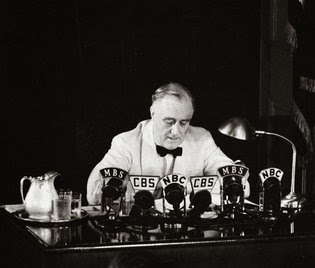What If FDR Had Been Shot? A Classic Counterfactual
Historian Michael Beschloss
avails himself of Philip K. Dick’s well-known “what if?” from The Man in the High Castle in his review
in yesterday’s New York Times of
David Kaiser’s new book, No End Save
Victory.
“In February 1933, President-elect Franklin Roosevelt was nearly murdered in Miami by a gunman whose errant fatal shot struck Mayor Anton Cermak of Chicago. Cermak gallantly told Roosevelt, “I’m glad it was me instead of you.” Today’s Americans should not disagree. Had Roosevelt been killed, the 32nd president of the United States would have been his running mate, Speaker John Nance Garner of Texas, a neophyte in foreign and military affairs, isolationist by instinct and deeply rooted in a Congress determined, notwithstanding the growing threats from Hitler and the imperial Japanese, to keep another president from repeating what a majority of its members considered to be Woodrow Wilson’s catastrophic mistake of needlessly dragging the nation into a distant “foreign war.”
Beschloss’s reason for
beginning his review with this famous nightmare counterfactual is to express gratitude
that history turned out as it did:
“Photoshopping Roosevelt out of the history of that epoch shows
how lucky we are that he indeed survived to be our president, preparing America
to fight and help win World War II. So does “No End Save Victory,” David Kaiser’s judicious,
detailed and soundly researched history of Roosevelt’s tortuous process of
first preparing America psychologically, politically and militarily, and then
nudging the country into that apocalyptic struggle….”
At the same time, the
counterfactual serves to remind us of how easily things might have been
different….
“Americans are not immune to the temptation to see historical
events as inevitable, which, by
logic, reduces the credit we grant to individual leaders like Roosevelt. But
Kaiser crisply reminds us how dangerous and unpredictable the period really
was, noting Roosevelt’s not inconsiderable private dread that Hitler might well
put himself in a position to dominate the world.”
It is seems notable to me that Beschloss,
like other scholars these days, chose to begin his review with a “what if?” It confirms the fact that
counterfactuals serve as rhetorically powerful tools for heightening the
evocative power of historical events.



Comments